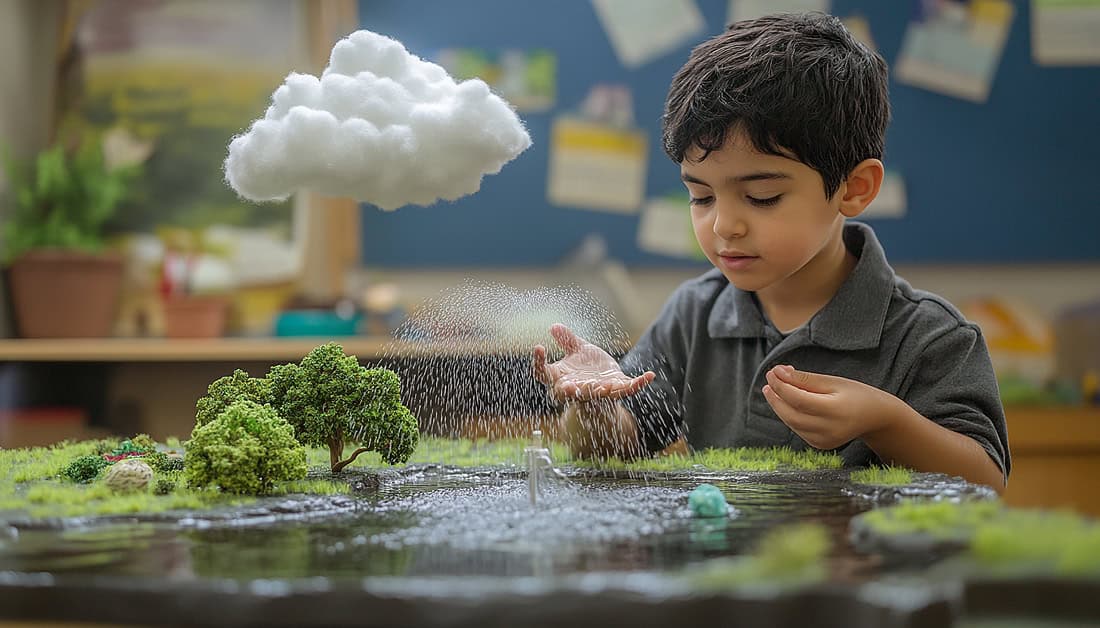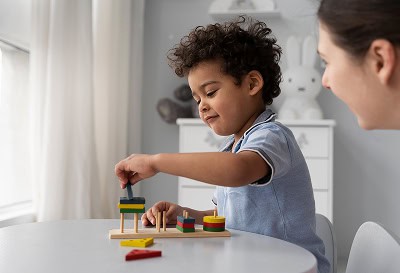
16 Jun The Role of Multiple Intelligences in Playschools

At Mainadevi Bajaj International Playschool (MBIP), we know that every child is born with a spark. Our role as educators is to fan that spark into a flame—not by fitting them into a mould, but by recognising who they truly are and how they learn best. That’s why our approach is deeply rooted in the Theory of Multiple Intelligences (MI), developed by psychologist Howard Gardner.
In a world that’s becoming more diverse and interconnected, it’s not enough to prepare children for exams—we need to prepare them for life. And life demands a wide range of skills, not just academic ones.
What Are Multiple Intelligences?
Gardner proposed that intelligence isn’t just about IQ or academic scores. Instead, he introduced eight distinct intelligences—each equally important and valuable:
- Linguistic – sensitivity to language, storytelling and wordplay
- Logical-Mathematical – strength in reasoning, logic and patterns
- Musical – talent for rhythm, melody and sound
- Bodily-Kinesthetic – ability to learn through movement and physical activity
- Spatial – thinking in images, strong visual and spatial judgment
- Interpersonal – natural connection with others, empathy and teamwork
- Intrapersonal – deep self-awareness and reflective thinking
- Naturalistic – affinity for the natural world—plants, animals, weather and environment
Most children display a blend of these intelligences, and at MBIP, we help uncover and develop each one through thoughtful observation, diverse activities and a responsive curriculum.


Why Is This So Important in Early Childhood?
The preschool years are critical. This is when the brain is rapidly developing, habits are forming and children are most open to learning. Yet traditional approaches can often limit a child’s potential by focusing only on language and numbers.
At MBIP, our MI-based framework ensures that:
- • No child is left behind – Some may not speak fluently yet but may express themselves beautifully through dance, rhythm, or art.
- • Children feel successful – When they are engaged in activities that suit their intelligence, they enjoy learning and build confidence.
- • We nurture the whole child – We don’t just develop a child’s mind but also their heart, body, emotions and sense of self.
This broad approach is key to developing curious, capable and emotionally secure individuals—not just good students.
How We Implement Multiple Intelligences at MBIP?
Here’s a closer look at how MI comes alive in our classrooms every day:
For the Musical Intelligence:
- • Singing songs and phonics’ jingles
- • Playing percussion instruments during rhythm sessions
- • Learning through sound-based storytelling
For Logical-Mathematical Intelligence:
- • Pattern recognition games and shape sorting
- • Simple experiments with water, sand, or magnets
- • Counting games, puzzles and calendar-based activities
For Visual-Spatial Intelligence:
- • Drawing, painting
- • Visual storytelling using picture books and props
- • Puzzles and building blocks
For Bodily-Kinesthetic Intelligence:
- • Free play, yoga, obstacle courses
- • Dance and drama-based storytelling
- • Sand play, water play and fine-motor activities
For Linguistic Intelligence:
- • Storytime, rhymes and puppet shows
- • Vocabulary games and phonics drills
- • Role-play and interactive conversations
For Naturalistic Intelligence:
- • Gardening, nature walks and outdoor observation
- • Sorting leaves, pebbles, flowers by categories
- • Learning through seasonal changes and weather-based themes
For Interpersonal Intelligence:
- • Group tasks, circle time and cooperative games
- • Learning about emotions, friendship and empathy through stories
- • Celebrating birthdays, festivals and special days together
For Intrapersonal Intelligence:
- • Quiet time or mindfulness moments
- • Talking about feelings through emotion cards
- • “All About Me” activities to foster self-awareness
Our classrooms are designed to stimulate these intelligences and allow children to explore, choose and express freely.
Empowering Teachers, Involving Parents
At MBIP, our educators are not just teachers—they are keen observers, facilitators and nurturers. Each teacher is trained to:
- • Identify dominant intelligences through day-to-day interactions
- • Offer activities that build on each child’s strengths while gently introducing new areas
- • Encourage expression in multiple formats—not just verbal or written
And we don’t stop at the classroom. We bring parents into the learning process through:
- • Workshops and orientation programs for parents to explain the MI approach
- • Regular feedback highlighting their child’s learning style and progress
- • Home activity suggestions based on their child’s strengths
This shared understanding between home and school helps each child feel supported, secure and celebrated.
Real Impact, Lifelong Benefits
When we honour multiple intelligences, we teach children that:
- • There are many ways to be smart
- • Every child has something special to offer
- • Success is about more than marks—it’s about confidence, creativity, communication and curiosity
Children from MBIP grow up knowing their strengths, working on their challenges and learning to value both themselves and others. They become independent thinkers, compassionate friends and enthusiastic learners—skills that will carry them far beyond preschool.
The journey of learning begins with understanding. At Mainadevi Bajaj International Playschool, our Multiple Intelligences approach ensures that every child is seen, heard and valued—not for fitting into a box, but for everything that makes them unique.
By embracing all forms of intelligence, we’re not just preparing children for school—we’re preparing them for life.
Because when children feel understood, they don’t just learn—they thrive.



Sorry, the comment form is closed at this time.